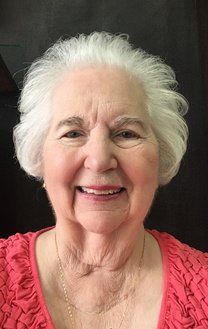Oral history interview with Amy H. Newman
- 2009-Aug-25 – 2009-Aug-26
Amy Hauck Newman was raised in Buffalo, New York, one of two sisters. Her mother was an elementary school teacher; her father, a mechanical engineer. She enjoyed school from a young age and was interested in literature, poetry, and the sciences. She wanted to become a pediatrician, although her high school discouraged her from pursuing science. As an undergraduate at Mary Washington College, she majored in chemistry and undertook pre-medical coursework. Most of her peers were women and she found the college to be a very supportive environment; she decided to go to graduate school for medicinal chemistry. Graduate school was challenging, but her program was fairly streamlined, and she finished her degree in four years. Newman did her postdoctorate with Kenner C. Rice at NIH, where she focused on opiate synthesis and benzodiazopene receptors. Rice was a encouraging mentor, teaching her to write scientifically and to pursue collaborations. Since NIH had few opportunities for permanent positions, she then took a position at Walter Reed Army Institute of Research. At Rice's suggestion, she began researching sigma receptor ligands; she continued to seek collaborators, including Jeffrey M. Witkin at NIH, which eventually led to the opportunity to begin a medicinal chemistry program back at NIH. At NIH she found a work environment supportive of her growing family and she began conducting research on analogues of benztropine—a dopamine transporter ligand like cocaine that does not have cocaine-like effects on the body. Newman's role as an NIH scientist is to develop the basic science of compounds in the hopes that pharmaceutical companies will continue to develop them into medications. Her lab also conducts research synthesizing amide analogues with an affinity for glutamate receptors, which also play a role in drug abuse. She has intentionally kept her lab small, though has maintained a vigorous research program; she has also taken on additional administrative responsibilities like committees. At the end of the interview Newman discusses balancing her family and career; she comments on science education in the United States; and she shares her frustrations with how the communication of science to the public leads to unrealistic expectations for drug development and with the process of drug development itself. Newman notes how public perceptions of addiction have changed, and hopes that will translate into more attention from pharmaceutical companies. She concludes her interview by reflecting on the types of mentors she has had, and her efforts to be a strong mentor.
Access this interview
By request 1 PDF Transcript File and 6 Audio Recording Files
Fill out a brief form and a staff member will review your request for these files. You should receive an email within 3 business days.
Usage is subject to restrictions set by the interviewee.
If you have any questions about transcripts, recordings, or usage permissions, contact the Center for Oral History at oralhistory@sciencehistory.org.





